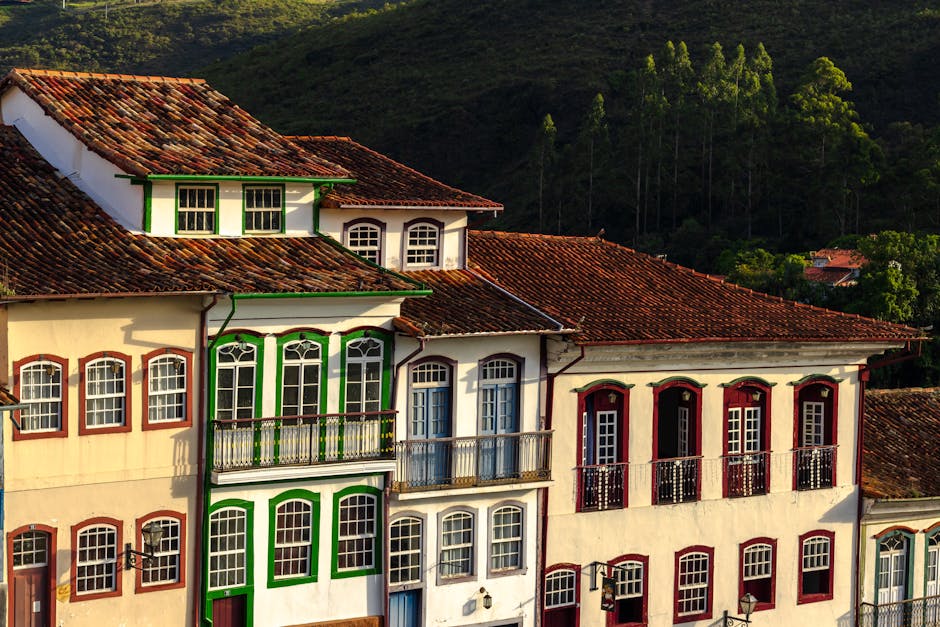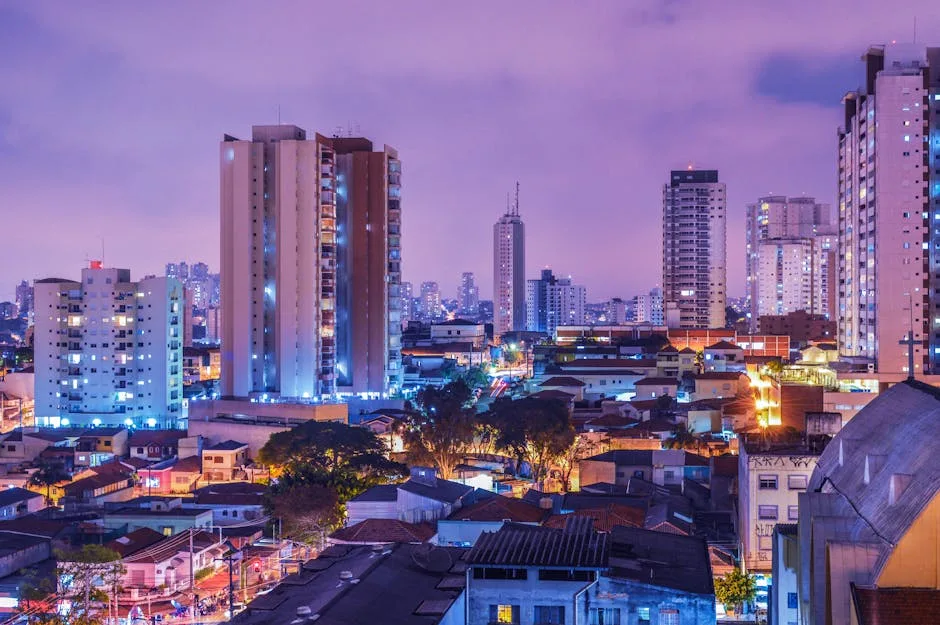Brazil is a country of vibrant colors, infectious rhythms, and a deep sense of community. When planning your dream trip to this South American marvel, understanding its national holiday calendar isn’t just a suggestion – it’s an essential ingredient for a truly unforgettable adventure. Whether you dream of samba-filled streets, serene beaches, or lush Amazonian rainforests, knowing when Brazilians celebrate can profoundly shape your experience.
Imagine arriving in Rio for Carnival without booking a year in advance, or trying to visit a museum on a national holiday only to find it closed. On the flip side, imagine stumbling upon a local festival you never knew existed, simply because you planned your trip around a regional celebration. This guide is here to help you anticipate, plan, and ultimately, embrace the unique rhythm of Brazil’s public holidays.
The Rhythm of Brazil: Why National Holidays Matter for Your Trip
Unlike some countries where public holidays are just a day off work, in Brazil, many holidays are significant cultural events. They can bring cities to a standstill, transform quiet towns into party hubs, or create opportunities for long weekends (known as ‘feriadões’ or ’emendas’) where Brazilians flock to coastal areas, mountains, or visit family. This means anticipating large crowds, increased demand for travel, and potential closures of certain services.
National vs. Regional: A Quick Overview
While this article focuses on national holidays – days observed across the entire country – it’s crucial to remember that Brazil also has a wealth of state and municipal holidays. These local celebrations can be just as impactful in specific regions. For instance, São Paulo celebrates its anniversary on January 25th, which is a holiday only in that city. Salvador has its own unique festivals. Always check the local calendar for your specific destination!
Brazil’s Major National Holidays: What to Expect
Let’s dive into the core of the Brazilian holiday calendar. Dates marked with an asterisk (*) are variable and depend on the ecclesiastical calendar.
January 1st: Ano Novo (New Year’s Day)
What to Expect: Brazilians take New Year’s Eve (Réveillon) very seriously, especially in coastal cities like Rio de Janeiro, where the Copacabana fireworks display is world-famous. January 1st is a day of rest and recovery. Most businesses will be closed, and public transport might operate on a reduced schedule. Expect beaches to be crowded from the previous night’s celebrations.
Travel Tip: If you plan to be in Brazil for Réveillon, book everything – flights, hotels, dinner reservations – many months in advance. Prices will be at a premium.
February/March: Carnaval (Carnival) *
What to Expect: This is Brazil’s most famous and spectacular holiday, typically falling 47 days before Easter. While the official national holiday is usually just Carnival Tuesday, the festivities often begin the Friday before and extend through Ash Wednesday. Cities like Rio de Janeiro, Salvador, Olinda, and São Paulo become massive street parties with parades, blocos (street parties), and dancing. Banks, government offices, and many businesses will be closed for the entire period. Transportation, especially inter-state buses and domestic flights, will be heavily booked and more expensive.
Travel Tip: Carnival is an experience like no other, but it requires significant planning. Decide which city you want to experience it in, book your accommodation and transport *at least* 6-12 months in advance, and be prepared for high prices and massive crowds. If you’re not interested in Carnival, this is generally a good time to visit more remote, less populated areas or postpone your trip.
March/April: Sexta-feira Santa (Good Friday) *
What to Expect: As a predominantly Catholic country, Good Friday is a solemn religious holiday. Most businesses, banks, and government offices will be closed. Families often gather, and it’s a quiet day for many. While not a party holiday, it often creates a long weekend (Páscoa – Easter Sunday is not a national holiday, but schools are often off).
Travel Tip: Expect reduced services. If you’re looking for a peaceful cultural experience, some towns, especially in Minas Gerais, have beautiful religious processions.
April 21st: Dia de Tiradentes (Tiradentes’ Day)
What to Expect: This day commemorates Joaquim José da Silva Xavier, a leader of the 18th-century anti-colonial movement, who became a national hero. It’s generally a quiet holiday, but since it often falls on a Monday or Friday, it’s a common ‘feriadão’ when Brazilians travel, especially to historical cities like Ouro Preto or Tiradentes (named after him).
Travel Tip: If April 21st creates a long weekend, book domestic travel and accommodation in popular tourist spots early.
May 1st: Dia do Trabalho (Labor Day / Workers’ Day)
What to Expect: Similar to many countries, this is a day off for workers. Businesses, banks, and government offices are typically closed. It can also create a long weekend if it falls near a Saturday or Sunday, leading to increased domestic travel.
Travel Tip: Anticipate local crowds if it’s a long weekend, especially in parks, beaches, and leisure areas.
May/June: Corpus Christi *
What to Expect: This Catholic holiday celebrates the presence of the Eucharist. It’s a movable feast, always observed on a Thursday, 60 days after Easter Sunday. While not technically a mandatory national holiday in the same vein as others, it’s widely observed as such, leading to a de facto holiday and often a ‘feriadão’ as many take Friday off. Religious processions, particularly famous in some towns for their intricate street carpets made of flowers and sawdust, are a highlight.
Travel Tip: If it’s a long weekend, expect popular domestic destinations to be busy. Check for local festivities if you’re interested in cultural immersion.
September 7th: Dia da Independência (Independence Day)
What to Expect: This day celebrates Brazil’s declaration of independence from Portugal in 1822. It’s a patriotic holiday, with military parades and civic ceremonies in major cities. Schools, banks, and government offices are closed. Like other mid-week holidays, it’s often ’emendado’ (bridged) with the weekend, creating another opportunity for Brazilians to travel.
Travel Tip: Expect patriotic displays and some road closures for parades in big cities. If it’s a long weekend, popular spots will be busy.
October 12th: Nossa Senhora Aparecida (Our Lady of Aparecida’s Day) & Dia das Crianças (Children’s Day)
What to Expect: This dual holiday celebrates Brazil’s patron saint, Our Lady of Aparecida, and also Children’s Day. It’s a significant religious day, with many pilgrims traveling to the Basilica of Aparecida in São Paulo state. It’s also a family-oriented day with activities for children. Naturally, it frequently results in a long weekend.
Travel Tip: Pilgrimage sites will be extremely crowded. Family-friendly attractions might also see more visitors. Good for experiencing local family culture.
November 2nd: Dia de Finados (All Souls’ Day)
What to Expect: This is a day for remembrance of the deceased. Brazilians often visit cemeteries to pay respects to family members. It’s a quiet, reflective holiday. Most businesses are closed, and public services might be limited. It’s not a celebratory holiday, but it can still create a long weekend.
Travel Tip: Respect the solemnity of the day. Don’t expect many tourist-oriented events.
November 15th: Proclamação da República (Proclamation of the Republic Day)
What to Expect: This day commemorates the end of the Brazilian Empire and the establishment of the First Brazilian Republic in 1889. Similar to Independence Day, it’s a civic holiday. It’s another prime candidate for a ‘feriadão’ for Brazilians, leading to increased domestic travel.
Travel Tip: As with other long weekends, popular destinations will be more crowded and require earlier booking.
December 25th: Natal (Christmas Day)
What to Expect: Christmas in Brazil is a significant family holiday, much like in many Western countries. Christmas Eve (Véspera de Natal) is often the main celebration, with families gathering for a late dinner. December 25th is a day for rest, family, and opening presents. Most businesses will be closed, and public transport will be limited.
Travel Tip: If you’re in Brazil for Christmas, embrace the local traditions. Many tourist services will be reduced or closed, so plan your activities accordingly. Some restaurants might offer special Christmas menus but require reservations.
How Holidays Shape Your Brazilian Travel Experience
The Upside: Vibrant Festivities and Cultural Immersion
Traveling during a Brazilian holiday can be truly exhilarating! You might find yourself amidst a Carnival street party, witnessing a beautiful religious procession, or enjoying a local ‘festa junina’ (June Festivals – not a national holiday but very popular). These are prime opportunities to dive deep into Brazilian culture, witness unique traditions, enjoy local music, dance, and food, and interact with Brazilians in a celebratory mood. The energy is often electric, and the collective joy is infectious.
The Downside: Crowds, Higher Prices, and Closures
- Crowds: Major tourist attractions, popular beaches, national parks, and city centers will be significantly more crowded, especially during long weekends.
- Prices: Flights (domestic and international), hotels, car rentals, and tour packages often see a surge in prices, sometimes doubling or tripling, particularly around Carnival and New Year’s.
- Closures: Banks, government offices, post offices, and many private businesses (including some museums, shops, and restaurants, especially in smaller towns) will be closed on national holidays. Always double-check operating hours.
- Transportation: Increased demand for buses, trains, and domestic flights means booking well in advance is crucial. Roads leading to popular destinations can experience heavy traffic.
Smart Strategies for Planning Your Holiday Trip to Brazil
Book Well in Advance, Especially for Popular Holidays
This cannot be stressed enough, particularly for New Year’s and Carnival. Aim to book flights, accommodations, and any high-demand tours or tickets (like Sambadrome tickets for Carnival) 6 to 12 months out. For other long weekends, 3 to 6 months is a safer bet. Early booking often means better availability and more reasonable prices.
Embrace Flexibility and Consider Off-Peak Holiday Travel
If you’re not keen on navigating massive crowds and higher costs, consider traveling just before or after a major holiday. You might still catch some of the festive atmosphere but with fewer people and lower prices. For example, visiting the week after Carnival can offer a more relaxed experience while still soaking in the lingering festive spirit.
Research Local & Regional Calendars
While national holidays are important, remember Brazil’s vastness. Each state and municipality has its own calendar of events and local holidays. A quick search for ‘feriados [city name]’ can reveal smaller festivals, patron saint days, or city anniversaries that could either enhance or impact your visit.
Prioritize Your Must-Dos and Be Prepared for Changes
If there are specific attractions or experiences you absolutely can’t miss, check their holiday operating hours well in advance. Assume that things might operate differently, and build some flexibility into your itinerary. A relaxed attitude will serve you well.
Making the Most of Holiday Travel in Brazil
Dive into Local Traditions
If you find yourself in Brazil during a holiday, don’t shy away from it! Participate in a local ‘bloco’ during Carnival, try typical holiday foods, or observe a religious procession. This is where you’ll create some of your most authentic and cherished memories.
Stay Connected and Informed
Keep an eye on local news or ask your hotel concierge for up-to-date information on events, closures, or transportation changes during holidays. Having a local SIM card can be incredibly helpful for accessing maps and information on the go.
Safety First in Festive Crowds
During large holiday gatherings, particularly Carnival, be extra vigilant about your belongings. Keep valuables out of sight, consider using a money belt, and be aware of your surroundings. Stick to well-lit, populated areas, and if enjoying a drink, do so responsibly.


